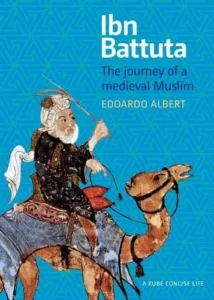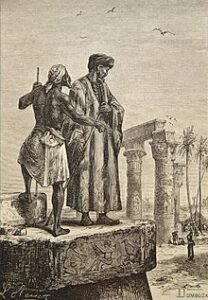Ibn Battuta: The Father of Travel and Exploration

Ibn Battuta, one of history’s greatest travelers, embarked on a 29-year journey across Africa, the Middle East, India, and China, documenting his experiences in The Rihla. Born in 1304 in Morocco, his deep Islamic education and curiosity fueled his explorations. Along the way, he served as a judge, diplomat, and scholar. His writings offer invaluable insights into medieval societies, trade, and cultures, cementing his legacy as a pioneer in world history and travel literature.
Early Life and Education
Ibn Battuta was born in 1304 in Tangier, Morocco, into a family of Islamic scholars and judges. He received a traditional education in Islamic law and theology, studying the Quran, Hadith, and jurisprudence. His early exposure to religious scholarship instilled a deep intellectual curiosity. Inspired by the rich academic and cultural environment of the Islamic world, he set out on his first journey to Mecca for Hajj at the age of 21, marking the beginning of his legendary travels.
Major Contributions
Extensive Travels (1325–1354)
Ibn Battuta’s journeys covered nearly 75,000 miles across Africa, the Middle East, India, and China. His initial pilgrimage to Mecca expanded into decades of exploration, where he documented diverse cultures, political structures, and trade routes.
The Rihla (Travelogue of Ibn Battuta)
Commissioned by the Sultan of Morocco, The Rihla remains a crucial historical record of 14th-century civilizations. It provides first hand insights into governance, social norms, and religious practices across the Islamic world.

Diplomatic and Administrative Roles
Ibn Battuta served as a Qadi (Islamic judge) in Delhi under Sultan Muhammad bin Tughlaq, applying his expertise in Islamic law to settle legal disputes. He later acted as a diplomat and envoy, representing rulers in foreign courts. His travels took him to regions such as China and the Malian Empire, where he facilitated cultural exchanges and documented governance systems, trade networks, and social structures, enriching historical understanding of medieval diplomacy.
Legacy and Influence
Ibn Battuta’s detailed travel accounts significantly shaped geographical knowledge and historical records. His observations of medieval societies provided invaluable insights into governance, trade, and cultural interactions across the Islamic world and beyond.
Modern historians recognize The Rihla as a crucial source for understanding 14th-century civilizations, while travelers admire his adventurous spirit. His legacy endures in global travel literature, inspiring cultural exploration and bridging historical narratives between diverse regions through firsthand documentation of the medieval world.
Conclusion
Ibn Battuta’s extraordinary travels and detailed accounts make him one of history’s greatest explorers. His documentation of diverse cultures, political systems, and trade routes provides invaluable insights into the medieval world. His legacy highlights the importance of preserving historical travel records to understand past civilizations. Modern explorers can learn from his curiosity, adaptability, and dedication to cultural exchange, making his journey a timeless inspiration for scholars, historians, and travelers alike.



